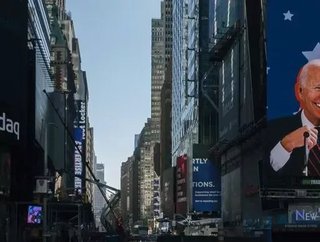100 Days Under President Biden Packs a Supply Chain Punch

America has reached the 100-day milestone under a new presidential administration that has put supply chain front and center. In line with the increasing awareness and importance of supply chain, President Biden has acknowledged the critical role of this field more than any of his predecessors. A number of his early activities have set up both domestic and global supply chains for resilience after a tough 2020.
Pandemic supply chains get a booster shot
Health care supply chains were of course one of his first priorities. On his second day in office, Biden signed the Executive Order on a Sustainable Public Health Supply Chain to build and sustain “long-term capacity in the United States to manufacture supplies for future pandemics and biological threats.” More specifically, the strategy aims to strengthen the global pandemic supply chain system, create necessary redundancies to address possible points of failure in supply chains, set up mechanisms to respond to emergency supply needs and expand domestic production of pandemic supplies.
The Defense Production Act expands the manufacturing of COVID-19 tests, personal protective equipment and vaccines. This helped to double the original goal, with more than 230 million COVID-19 vaccine shots administered and about a third of the U.S. adult population fully vaccinated.
In addition, the White House forged a historic collaboration between rivals Merck and Johnson & Johnson to resolve bottlenecks.
The Biden administration also opened opportunities in health care supply chains by initiating a program that turns pharmacies and community health centers into vaccination sites; setting up federally run vaccination centers across the country; and expanding the list of eligible vaccinators to include dentists, paramedics and other medical professionals.
Paving the road to resilience
About a month into his presidency, Biden signed the Executive Order on America’s Supply Chains, which spells out a key point that supply chain professionals have long known to be true: Resilient supply chains revitalize manufacturing capacity, help maintain a competitive edge in research and development, and create well-paying jobs.
"The Association for Supply Chain Management is very enthusiastic about the Biden administration’s recognition of the field and the people who power it"
The executive order set in motion another 100-day timeline, during which the U.S. Secretaries of Commerce, Energy, Defense, and Health and Human Services will assess the supply chain risks related to semiconductors, high-capacity batteries, critical minerals and other strategic materials. Of course, the shortage of semiconductors, which engineers need to control the electrical properties and behavior of certain materials during manufacturing, has complicated the production of cars and trucks; personal computers, digital cameras and other consumer products; household appliances, such as smart refrigerators and washing machines; and countless other common items — in short, everything that’s modern and electronic.
The worldwide semiconductor issue highlights another key point: these initiatives may come from the White House, but they will not be successful unless they are carried out with an eye to universal challenges. International raw material and commodity shortages, escalating food prices, the Suez Canal debacle and, of course, a global pandemic all highlight that we live in an interconnected world.
Which brings up arguably the most important 100-day initiative: just hours into his presidency, Biden signaled his administration’s dedication to defending humanity’s ultimate infrastructure. By rejoining the Paris Agreement, the White House showed it is serious about slowing climate change and creating more sustainable business practices, which will undoubtedly change the way companies operate for the better and protect our collective future.
More to be done
The Association for Supply Chain Management is very enthusiastic about the Biden administration’s recognition of the field and the people who power it. There certainly have been some real victories in this short time. Still, it’s important to keep in mind that many of the 100-day strategies are just that: strategies. Rhetoric is good; action is better — and it’s going to take a lot of work to turn these initiatives into effective solutions. As always, those of us in supply chain are ready and eager to use our valuable skill sets to implement plans and infrastructure, achieve efficiencies, manage risk, and deliver results.
Abe Eshkenazi is CEO of the Association for Supply Chain Management (ASCM), the world's largest nonprofit association for supply chain.
- KPMG and ASCM Unveil Latest Supply Chain Stability IndexSupply Chain Risk Management
- Supply Chain Problems Sees Partnerships Programme GrowOperations
- Firms 'turning to regional suppliers and manufacturers'Supply Chain Risk Management
- Supply chain tech roundup: Avery Denison, Cargill, OlamTechnology






